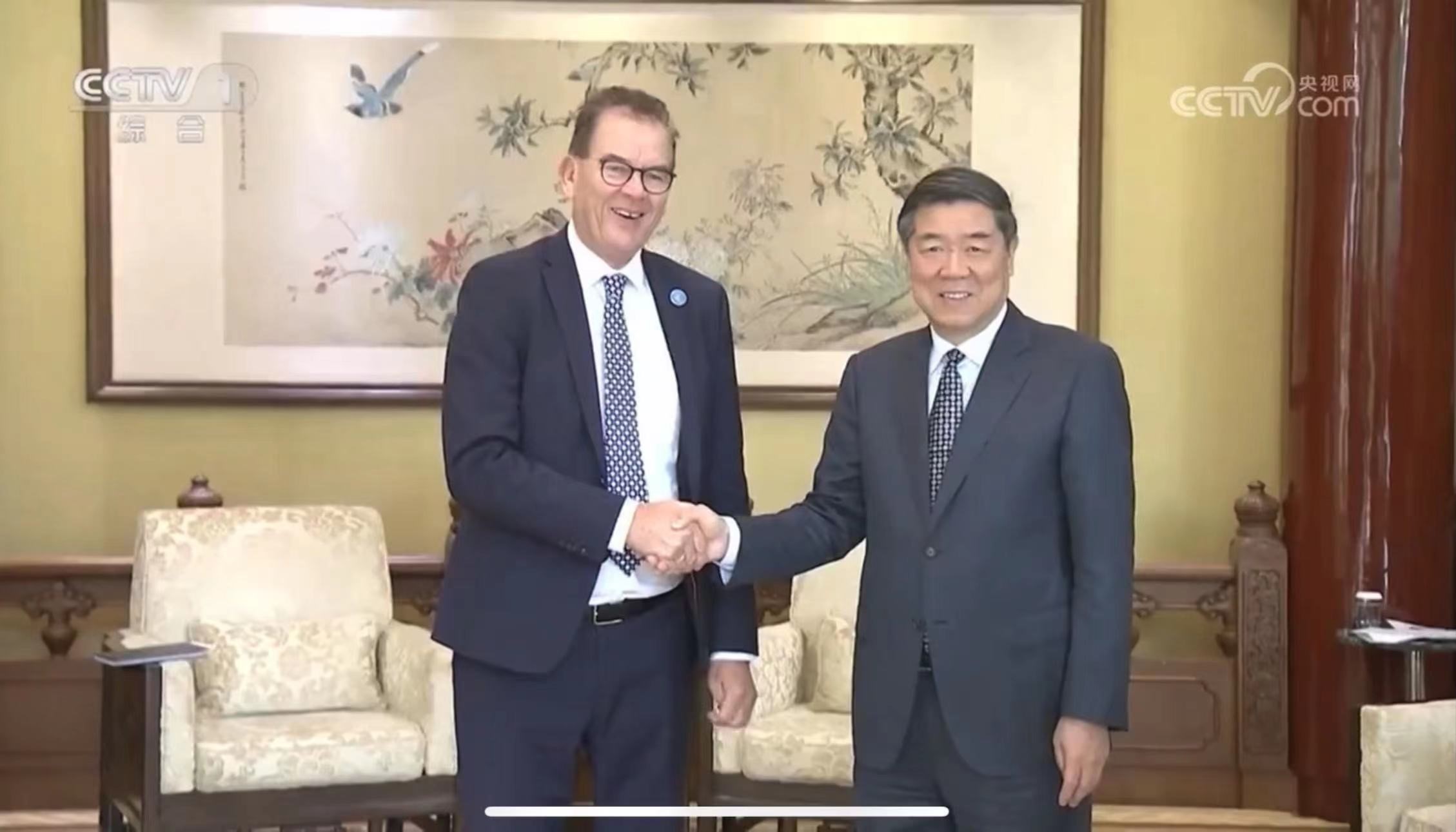

UNIDO's Director General visits China to bring cooperation to a new level
20 October 2023
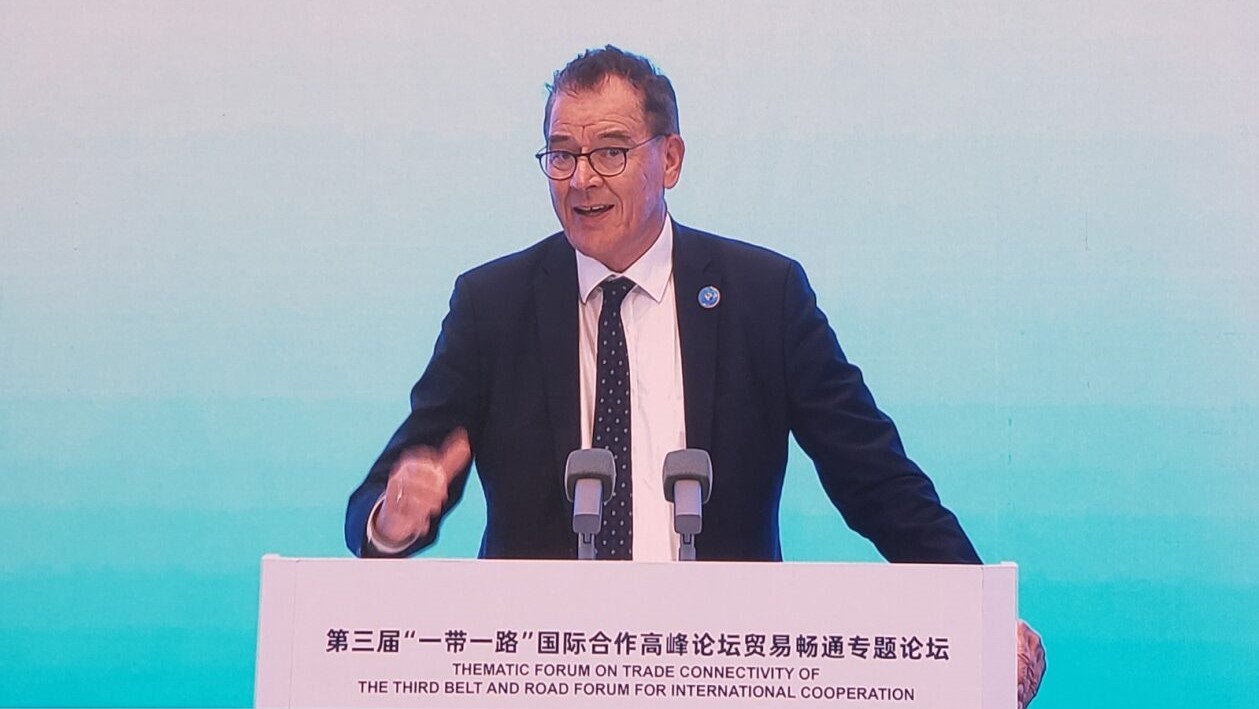
BEIJING – UNIDO's Director General Gerd Müller recently visited China. During his trip, Müller met with the top Chinese leadership to discuss how UNIDO can support the implementation of the government's priorities and multilateral initiatives to reduce poverty worldwide, including the Belt and Road Initiative (BRI) and the Global Development Initiative (GDI).
Müller signed new partnership frameworks with the Chinese government and initiated lighthouse projects in key areas such as food security, energy and climate change mitigation, as well as digitilization and artificial intelligence (AI) .
Director General Müller said, ”We are entering a new quality of cooperation with China. We take note of President’s Xi Jinping’s eight priority areas under the BRI over the next 10 years and will work together to achieve those. These key areas include digitalization, decarbonization, agro-tech and the circular economy. China is making concrete commitments to transfer technology and bring investment to developing countries to alleviate poverty and accelerate their progress to achieve the Sustainable Development Goals.”
Müller held productive discussions with He Lifeng, Vice Premier of the State Council of China, focusing on bolstering inclusive and sustainable industrial development in China. They also discussed how UNIDO can support the vision of sustainable development in the Global South that President Xi Jinping outlined at Belt and Road Forum.

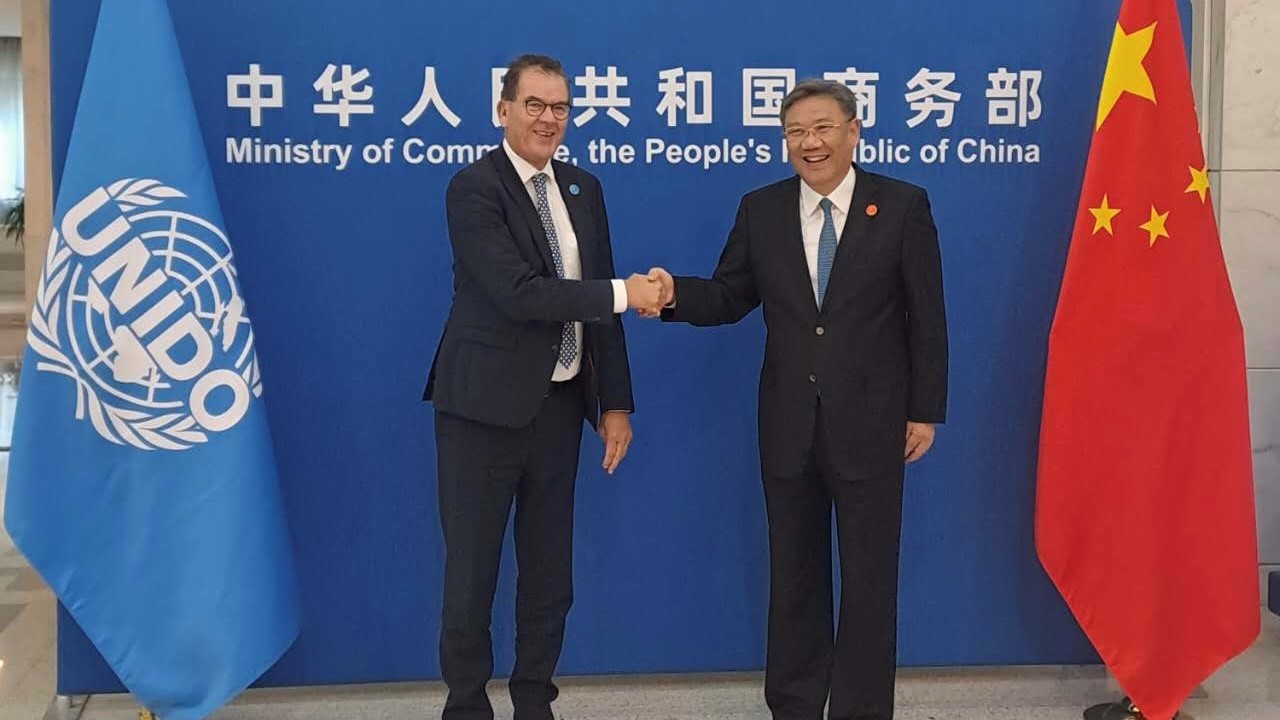
He also met with Wang Wentao, China's Minister of Commerce (MOFCOM), and Jin Zhuanglong, Minister of Industry and Information Technology (MIIT), to solidify a new quality of cooperation in key areas such as the digital economy, supply chain standards and conformity assessment. Two significant agreements were signed, including a Strategic Cooperation Framework (2023-2025) between UNIDO and China, and a Memorandum of Understanding with MIIT.
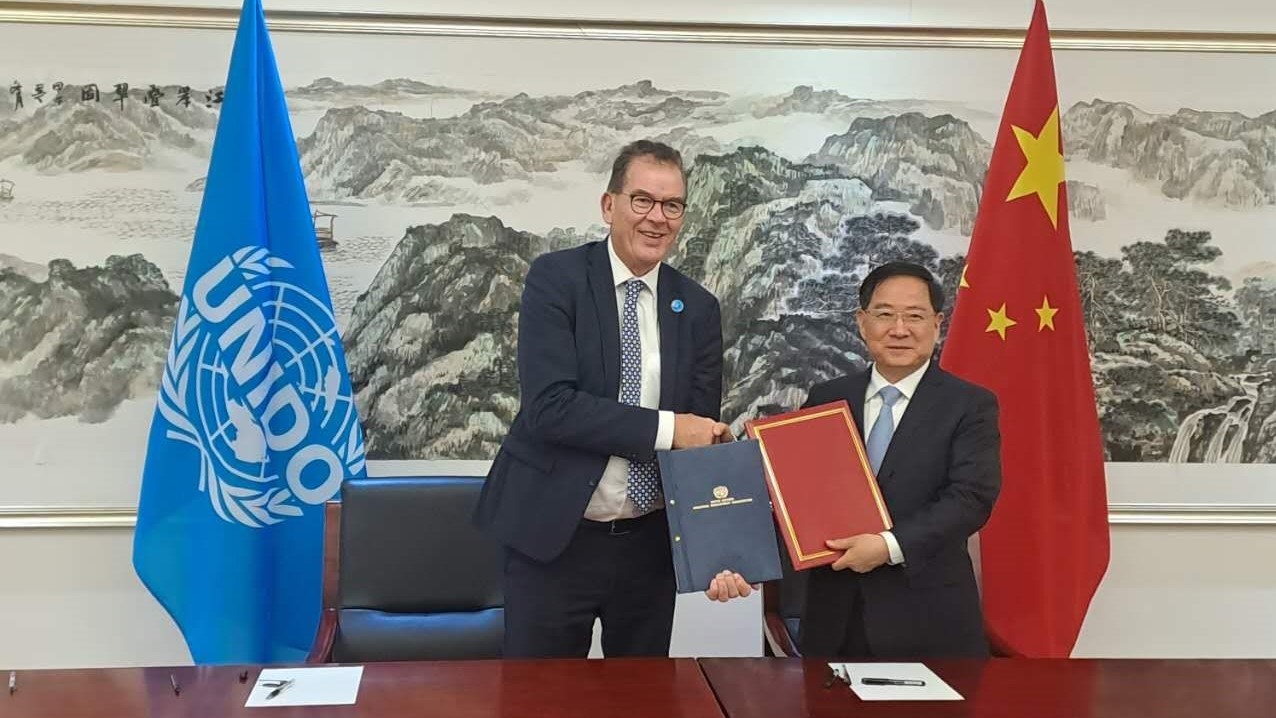
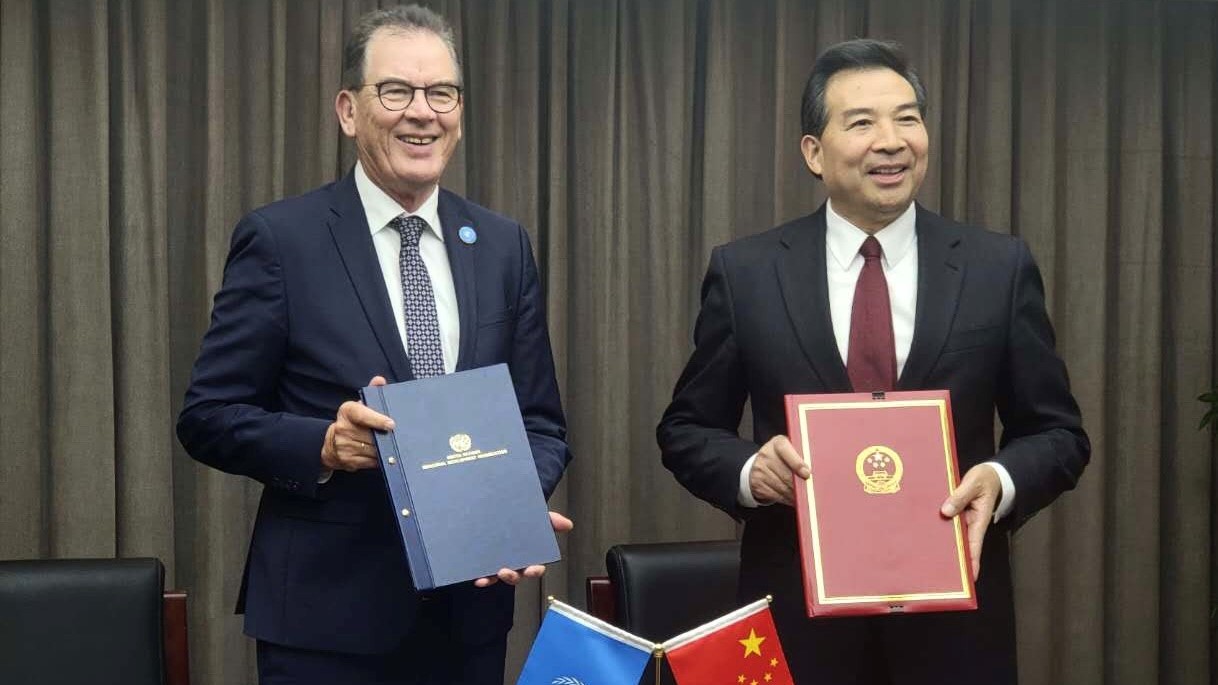
UNIDO's Director General also engaged with Luo Zhaohui, Chairman of the China International Development Cooperation Agency (CIDCA). Both parties committed to enhancing cooperation in promoting inclusive and sustainable industrial development, along with concrete plans for four new technical cooperation projects in areas covering agricultural mechanization, agro-food parks, livestock value chains and small hydropower in developing countries, with a total budget of approximately US$6.3m. Discussions about a large-scale project to create centres of excellence for agro-technology, renewable energy, and digitalization in Africa, amounting to US$50m, concluded with an agreement to propose the initial roll-out of this initiative in four African countries.
Furthermore, Müller joined the 3rd Belt and Road Forum for International Cooperation. During the Thematic Forum on Trade Connectivity, he emphasized the need make bigger efforts to end hunger and poverty, tackle climate change and protect the environment. He urged industrialized countries to fulfil their commitments to the Global South.
The Director General stressed the potential of the Belt and Road Initiative to accelerate the achievement of the SDGs and promote investments in sustainable industrialization and clean energy. He underscored the importance of ensuring the environmental, social and financial sustainability of these investments.
On the sidelines of the Belt and Road Forum, UNIDO and the Export-Import Bank of China signed a Memorandum of Understanding to jointly promote inclusive and sustainable industrial development
During a meeting between Director General and Jin Liqun, President of the Asian Infrastructure Investment Bank (AIIB), both acknowledged the great potential for cooperating in green and technology-enabled sustainable infrastructure development. A partnership framework between the two organizations is being discussed to forge concrete outcomes.
To conclude his visit, Director General Müller visited the National Agricultural Science and Technology Demonstration Park and the National Crop Genebank. He emphasized the importance of innovative research in agro-tech and gene editing for climate-resilient crops and more abundant yields. He reiterated his commitment to strengthening the food value chain in developing and least developed countries. He said that research and demonstration activities at this world-class institute prove that a world without hunger is indeed possible as the necessary technology and knowledge do exist, adding that these need to be transfered to the developing countries and this is where UNIDO can play an important role.